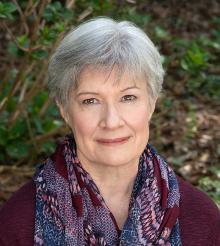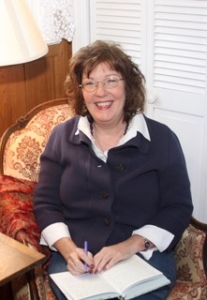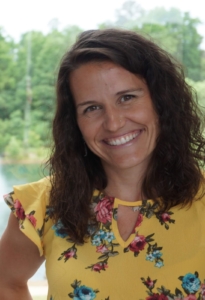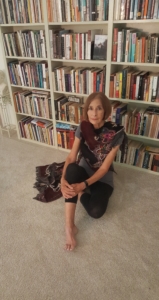Silent Partners
Beside my reading chair is a table that’s been in my family for generations. It’s at least 130 years old, with fluted legs and three small finials gracing each side. The table was once painted off-white, and because my grandfather smoked a pipe, a large burn mark scarred the top. Many years ago, I’d tried to remove the paint and sand the top but failed miserably. Bits of white clung to the fluted edges and the ashtray blotch never budged. It was a mess.
Finally, I took the table to be refinished by a professional. I’d always thought it was oak, but when I picked it up the refinisher corrected me: definitely not oak, probably American chestnut. Ouch. That tree has been extinct for decades. In the eyes of Antiques Roadshow, I’d probably defaced (and devalued) a treasure.
The table is pretty, though, in its revision. It usually holds a stack of my husband’s cooking magazines and recently, my copy of Alice Munro’s collection, The Progress of Love. In the twenty years I’ve owned that book, I’ve read several of the stories many times. One is “The Moon Over the Orange Street Skating Rink,” which opens with a scene between two older characters who haven’t seen each other since they were children, and who suddenly meet. I’m struggling to write a scene similar to that, and I’ve turned to Munro for help. What does Munro do that I might borrow? What do her characters say – and not say? How does she avoid predictable dialogue? (That would be the kind I wrote in my first draft: “Hi Amelia, it’s me, Hank. Been a long time.” Yawn.)
Munro’s character Sam, who’s done well in life, is revisiting his hometown, where his old friend runs a neighborhood store. He finds her behind the counter, reading a romance novel.
Sam asked for cigarettes, to test her. She gave him his change and settled her sweater around her shoulders and picked up her book, all without looking at him. Her sweater was covered with little jiggly balls of pink and white wool, like popcorn. She waited till the last minute to speak to him.
“You taken up smoking in your old age, Sam?”
“I thought you didn’t know me.”
“I’d know your hide in a tannery,” said Callie, pleased with herself. “I knew you the minute you walked in that door.”
Sam is playing a game, and Callie has one, too. The testing and withholding give me an idea. A moment of recognition – or lack of it, or refusal to acknowledge it – is full of opportunity. Sam sizes up Callie from that unsophisticated sweater. He and his better circumstances seem to have given him the power in the scene, until she reveals her game. This tiny scene has tension. There’s plenty to inspire me, and off I go. My story is meant to be refinished over and over – no defacing an antique here. With my writer eyes open to Munro’s technique, each of my drafts will come closer to a piece I can live with.
ABOUT KATHRYN: Kathyrn Schwille is the author of the novel What Luck, This Life, set in East Texas around the time of the Columbia shuttle disaster. Her short stories, which have appeared in New Letters, Memorious, Crazyhorse, West Branch and other magazines, have twice won honorable mention in the Pushcart Prize. In 2013, she was awarded an Individual Artist Fellowship from the North Carolina Arts Council.
DEVELOP YOUR EYE WITH KATHRYN: Explore fiction by learning to read like a writer — alert to the craft on the page. We’ll read two contemporary short stories in advance: “The Wind” by Lauren Groff, and “Pedicure” by Elizabeth Strout. In class we’ll look closely at what these master storytellers do and why, with particular attention to their artistic decisions about language, structure, dialogue and getting characters on the page. More information here.
PLEASE NOTE: Proof of full Covid vaccination is required to attend in-person Charlotte Lit events. Send a pic of your vaccination card to staff@charlottelit.org.









